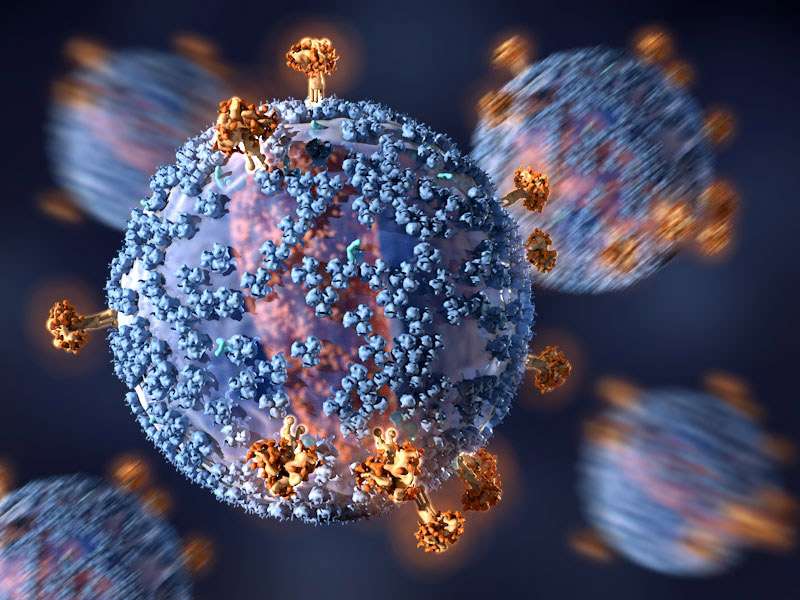HIV antibody infusion safely suppresses virus in infected people

A single infusion of a powerful antibody called VRC01 can suppress the level of HIV in the blood of infected people who are not taking antiretroviral therapy (ART), scientists at the National Institutes of Health report in a paper published today. The researchers also found that giving HIV-infected people VRC01 antibodies by infusing them into a vein or under the skin is safe and well tolerated, and the antibodies remain in the blood for an extended period.
The Phase 1 clinical trial conducted by scientists at the Vaccine Research Center of the National Institute of Allergy and Infectious Diseases (NIAID) involved 23 HIV-infected people, 15 of whom were taking ART and eight of whom were not. The individuals on ART received two infusions of VRC01 28 days apart, and those not on ART received one antibody infusion. The investigators assessed whether the antibody infusions were safe and whether they reduced the amount of HIV in blood plasma (the viral load) or within blood cells.
The researchers found that while antibody infusions did not reduce the amount of HIV in blood cells, they reduced plasma viral load more than 10-fold in six of the eight people who were not on ART. In the two people in this group who began the study with the lowest viral loads, the antibody suppressed HIV to extremely low levels for approximately 3 weeks—as long as VRC01 was present at therapeutic concentrations. In the other four people whose HIV levels declined, their viral load fell substantially but did not reach undetectable levels. In the two people not on ART whose viral loads remained steady despite the antibody infusion, it was subsequently found that the predominant HIV strain in their bodies had been resistant to VRC01 at the outset. The antibody also did not appear to have any effect in people taking ART, whose virus was already suppressed.
Several ongoing NIAID clinical studies will further elucidate the potential role of HIV antibodies in treating or preventing HIV infection.
More information: RM Lynch, et al. Virologic effects of broadly neutralizing antibody VRC01 administration during chronic HIV-1 infection. Science Translational Medicine DOI: 10.1126/scitranslmed.aad5752 (2015).



















